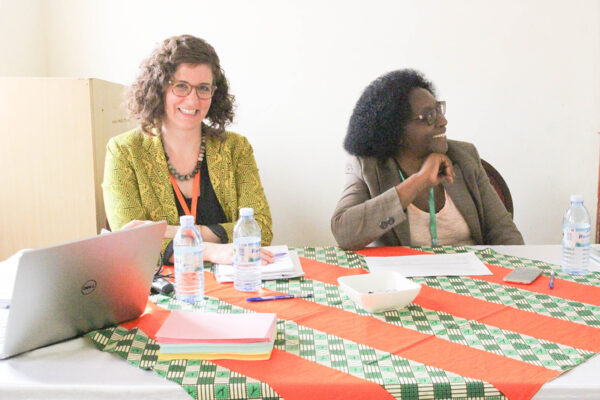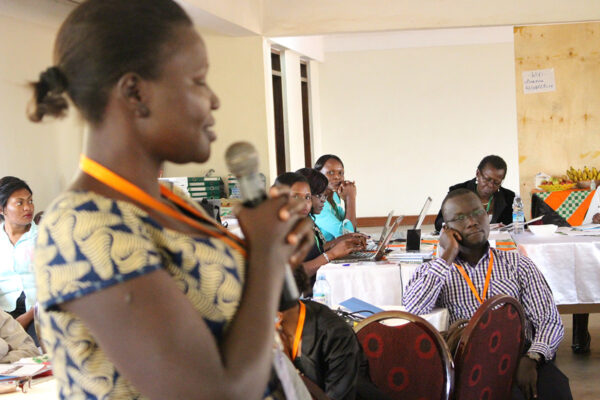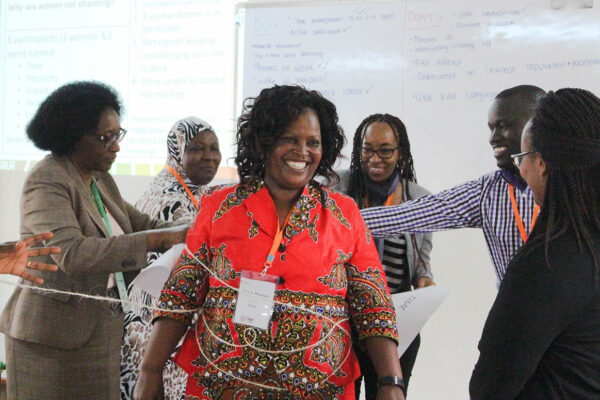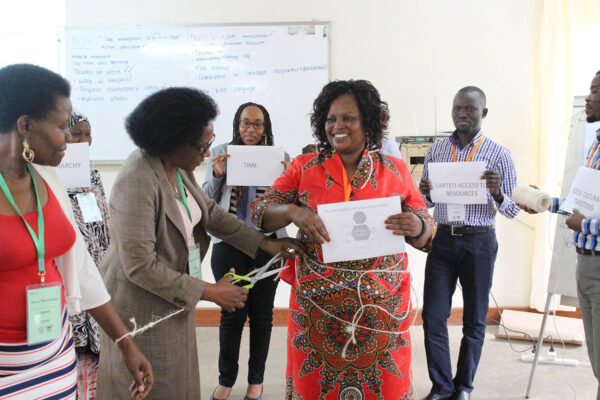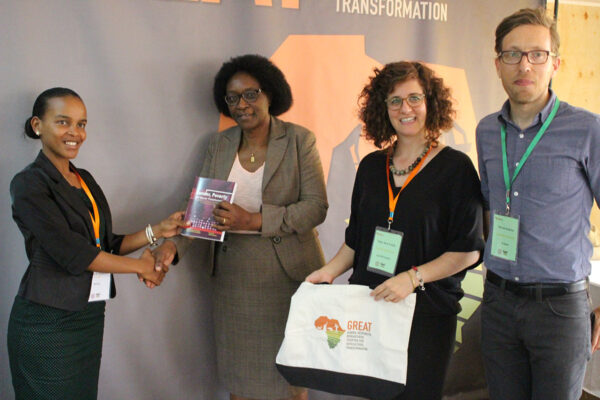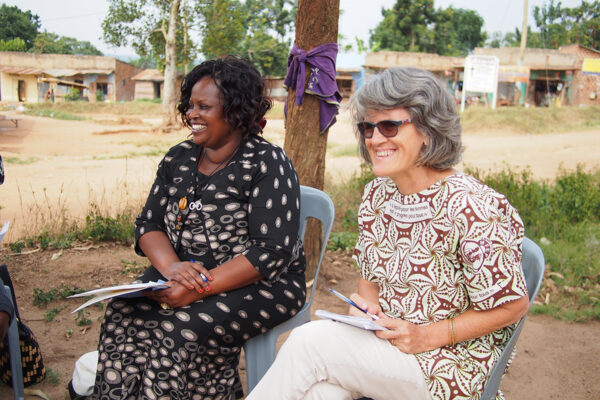Gender-Responsive Cereal Grains Breeding Course
GREAT delivers courses to agricultural researchers from sub-Saharan Africa in the theory and practice of gender-responsive research, seeking to increase opportunities for equitable participation and the sharing of benefits from agricultural research and improve the outcomes for smallholder women farmers, entrepreneurs, and farmer organizations. By building and engaging communities of researchers equipped with the skills, knowledge, and support systems to develop and implement gender-responsive projects, GREAT advances gender-responsiveness as the norm and standard for agricultural research.
The second GREAT course, Gender-responsive Cereal Grains Breeding, took place in Kampala, Uganda, over two weeks in August 2017 and January 2018, with mentor-supported field work in between.
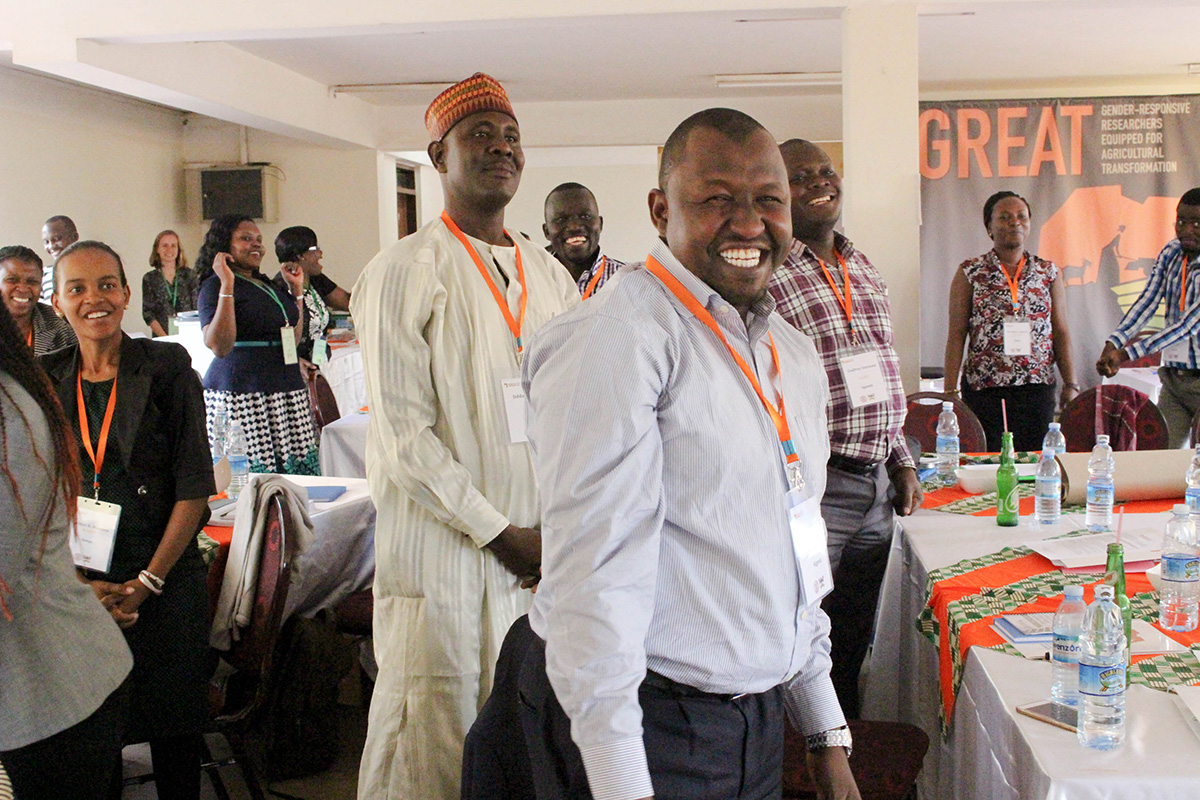
Course Objectives
In Week 1 of the GREAT course, participants learned applied gender theory and develop their own mixed methods research plans at Makerere University, in preparation for heading out to the field. In Week 2, participants learned how to analyze and write up data collected from mixed methods research, and GREAT worked with participants in strategies for effective communications, institutional transformation and building a community of practice. At the close of Week 2, participant teams competed for seed grant funding to further data collection and publish case studies. Two Fellows from each course were also selected to receive further training and take on training roles with future GREAT courses.
Part One
Week 1 Training: Makerere University
Gender-responsive research design:
1. Self realization, conceptual clarity, and interdisciplinarity
2. Methodology: qualitative and quantitative
3. Research question and case study
4. Impact assessment and participatory methods
Part Two
Field Work Phase: Participant Field Sites
Gender-responsive research application
5. Research planning and field data collection
Part Three
Week 2 Training: Makerere University
Gender-responsive research analysis; gender-responsive research communication; gender-responsive research community building
6. Data analysis and reporting
7. Communication to policymakers and the communities
8. Institutional transformation
9. Community of Practice
DESIGNED BY
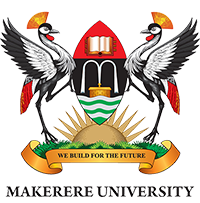

COURSE PARTICIPANTS
Conservation of Local Crop Genetic Diversity: Unraveling the Dynamics and Challenges at the Smallholder Farm Level (Uganda)
This project aims to improve understanding of the dynamics and challenges of conservation of local sorghum and cowpea genetic diversity in Uganda. The team will explore the amount and distribution of genetic diversity of these crops and document on- and off-farm factors influencing maintenance of genetic diversity.
Donor Agency: The Regional Universities Forum for Capacity Building in Agriculture (RUFORUM)
Field Trainer: Richard Miiro
Delivering Genetic Gain in Wheat (DGGW) (Ethiopia)
Delivering Genetic Gain in Wheat (DGGW) will mitigate serious threats to wheat brought about by climate change, and develop and deploy new strains of wheat that are heat tolerant as well as resistant to wheat rusts and other diseases. DGGW uses modern tools of comparative genomics and big data to develop and deploy varieties of wheat that incorporate climate resilience as well as improved disease resistance for smallholder farmers in these politically vulnerable regions
Donor Agency: The Bill & Melinda Gates Foundation, and the U.K. Department for International Development (DFID)
Field Trainer: Hale Tufan and Maria Nassuna-Musoke
Delivering Genetic Gain in Wheat (DGGW) Breeding Pipeline (Kenya)
Cognizant of the roles wheat breeding plays in providing seed of superior varieties, we’re involved in making crosses or adopting crosses made by the CIMMYT global wheat program, through a systematic “shuttle breeding scheme.” The goal is combining targeted traits and genes into desirable genetic backgrounds. Accordingly, as a team working with other subject matter specialists we select best plants from segregating populations (based on both phenotype and genotype), implement multilocational testing to model variety adaptation and yield stability. Seed of superior varieties is then bulked and disseminated to merchants and farmers. The project also incorporates advisory and outreach activities to all our clients, mainly farmers cultivating small- to large-scale farms.
Donor Agency: The Bill & Melinda Gates Foundation, and the U.K. Department for International Development (DFID)
Field Trainer: Miriam Kyotalimye
Determining the Effectiveness of Host Resistance, Intercropping, Imazapyr and Fertilizer Application Towards Striga Control in Maize (Uganda)
Maize, the most important food and income security cereal crop in Uganda, faces serious productivity threats by Striga. Yield losses attributed to Striga infestation exceed 70%, especially when combined with other biotic and abiotic constraints such as drought, nitrogen, and pest or disease stresses. This results in food insecurity at the household level, primarily affecting women and children, who are responsible for growing food for home consumption in most Striga-infested areas. This study is evaluating several Striga mitigation measures – including host plant resistance, where new Striga resistant lines have been developed; intercropping maize with legumes; maize seed coating with Imazapyr herbicide; and soil fertility amendments –with a goal of identifying gender-responsive technologies that are appropriate to farmer conditions.
Donor Agency: The World Bank
Field Trainer: Sarah Mayanja
Developing Maize Varieties and Hybrids Tolerant to Multiple Stresses (Ghana)
This project seeks to develop high-yielding stable maize varieties and hybrids that are tolerant to multiple stresses (abiotic and biotic). The project will help farmers in mitigating challenges resulting from stress-related constraints. With gender consideration, preferred traits and varieties that meet the needs of smallholder farmers and consumers would be bred and disseminated.
Donor Agency: Stress Tolerant Maize for Africa (STMA), under the Bill & Melinda Gates Foundation
Field Trainer: Margaret Mangheni and Lilian Nkengla
Development and Dissemination of High Yielding, Disease Resistant and Consumer-Preferred Rice Varieties for the Lowland and Upland Ecologies of Ghana
This project focuses on the development and dissemination of rice varieties to farmers. The project will help develop and disseminate new rice varieties across Ghana through organizing stakeholder meetings, producing fact sheets, and conducting field demonstrations and interviews. The project also aims to help entrepreneurs improve seed production techniques, aiding in the distribution of new seed varieties across the country.
Donor Agency: The Alliance for a Green Revolution in Africa (AGRA)
Field Trainer: Grace Bantebya
Extension of Hybrid Maize Varieties and Multiplication of Foundation Maize Seeds in Burundi
Maize is the most important cereal both in terms of total annual production and total area sown. It is practically cultivated in all the agro-ecological zones of Burundi. Due to its high allogamy, maize production decreases year by year due to lack of knowledge of appropriate breeding techniques. In Burundi, research has developed varieties adapted to different agro-ecological zones, but unfortunately these are not widely distributed in rural areas. The main objective of this project is to increase the maize yield in terms of quantity and quality, and to improve extension of new hybrid maize varieties and the multiplication of foundation seeds, especially focusing on the lack of improved maize seeds of Open Pollinated Varieties (OPVs).
Donor Agency: The International Fund for Agricultural Development (IFAD)The International Fund for Agricultural Development (IFAD)
Field Trainer: Adeline Muheebwa
Improving Food and Livelihood Security in East Africa Using Multiple Stress Tolerant Sorghum Cultivars (Kenya / Uganda)
This project’s goal is to use sorghum as a catalyst for agro-ecological intensification to improve crop and livestock productivity for enhanced food and nutritional security in Kenya and Uganda. The focus region has expansive semi-arid agroecological zones, with fragile agricultural production systems conditioned by drought, low soil fertility, acidity, and low-input traditional labour. Significant areas of this region are suitable for sorghum production, but in many cases farmers grow maize, leading to poor yields and often total crop failures – creating serious food and nutritional insecurity. To address this problem, the project will explore the use of multiplestress-tolerant sorghum with smallholder farms.
Donor Agency: The McKnight Foundation
Field Trainer: May Sengendo and Losira Nasirumbi-Sanya
Improving Maize Productivity by Drought Management in Tanzania
In both developed and developing nations, drought is the most important abiotic stress in maize, constraining and destabilizing maize grain production, and drought tolerance is one of the most important varietal selection criteria farmers consider. Frequent drought is particularly problematic for tropical and sub-tropical maize in Sub-Saharan Africa. Globally, annual drought-induced yield losses are thought to average 15% of yield potential, equal to 120 million tons of grain. Effective solutions are of utmost importance especially as the situation is set to worsen as climate change progresses. While improved resistant varieties are the most relevant intervention in the long run; powerful optimization of both maize genetics and Integrated Crop and Pest Management (ICPM) for maize would enhance control of the problem in both the short and medium terms.
Donor Agency: The Innovative Agricultural Research Initiative (iAGRI)
Field Trainer: Brenda Boonabaana
Research and Development Project for Food Security and Adaptation to Climate Change (Niger)
The main goal of the project is to improve food security and quality nutrition for smallholder farmers. Furthermore the project activities seek to reduce participant risk while improving their capacity to cope with climate change. This will be done in a participatory manner by taking advantage of existing agricultural research results and those to be developed during the project’s life span. The project will be focused in areas where these cereals are largely cultivated. Pearl millet represents the primary staple food grain, and constitutes the bedrock of food security in Niger, where it is alternatively used as a processed food, and feed for animals and poultry. Pearl millet is the principal source of income for small-scale Nigerian farmers. Irrigation production systems will also be examined.
Donor Agency: The McKnight Foundation, and the Government of Norway
Field Trainer: Anne Rietveld
Spring Bread Wheat Production Among Vulnerable People within Internally Displaced Persons’ (IDPs) Camp in Maiduguri, Nigeria
This project will explore the possibilities of improving gender equality and equity through wheat production. Particularly, this project will examine the use of wheat production as a tool for improved gender relations for people in an Internally Displaced Persons’ (IDPs) Camp in Northeastern Nigeria.
Donor Agency: Lake Chad Research Institute (LCRI)
Field Trainer: Peace Musiimenta
Stress Tolerant Rice for Africa and South Asia (STRASA) (Tanzania, Madagascar)
STRASA in Sub-Saharan Africa covers 18 countries with the goal to increase rice yields of poor farmers by 50% and incomes by 15% through the provision of seeds of stress tolerant rice varieties and improved capacities. The main stresses covered by the project are drought, submergence, salinity, iron toxicity and cold. The project applies recent advances in genetics and breeding in the development of tolerant rice varieties for increasing yields so that the rice producers can improve production and substantially improve their livelihoods. In addition, this project aims to build the capacity of researchers and seed producers and promote the exchange of elite germplasm. Furthermore, the project identifies the regions where stress-tolerant varieties have maximum impact and develops a network for seed production and adoption.
Donor Agency: The Bill & Melinda Gates Foundation, and the International Rice Research Institute (IRRI)
Field Trainer: Lori Leonard
Agricultural Transformation for Formerly Displaced Communities in Northern Uganda
The project aims to conduct a gender analysis of the reconstruction process in post-conflict areas in Northeastern Uganda, giving specific importance to young people in the return areas. It will examine whether and how gender influences access to resources, and the use of humanitarian and recovery assistance among the formerly displaced youth.
Impact of Gendered Production on Maize Productivity in Uganda
The project will evaluate the roles of gender in improving cereal production in Mid-West and Northern Ugandan in the districts of Masind, Lira and Arua. The focus will be smallholder farmers involved in maize production for the last five years. The team will conduct focus group discussion, key informant interviews and individual household interviews using checklists and questionnaires. The project will use these activities to explore questions such as: what activities are disaggregated by gender in cereals production? How is time use different by gender in cereal production? What factors affect cereal production by different gender categories?
Donor Agency: The World Bank
COURSE TRAINERS
GREAT’s training team draws from diverse experts with deep experience in areas including plant breeding, gender theory, community development, sociology, communications, monitoring and evaluation, participatory research, rural development, and more
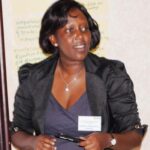
Adeline Muheebwa
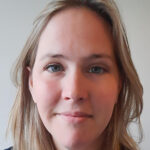
Anne Rietveld
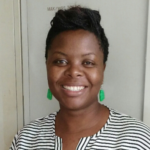
Brenda Boonabaana

Cheryl Doss

Devon Jenkins

Elizabeth Asiimwe
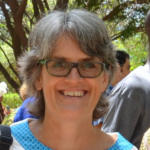
Eva Weltzien
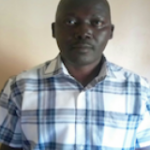
Godfrey Kayobyo
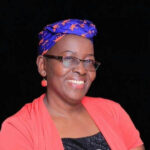
Grace Bantebya

Hale Ann Tufan

Jaron Porciello
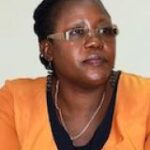
Josephine Ahikire
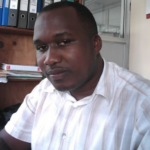
Lawrence Lubyayi
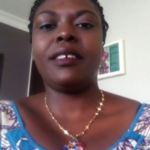
Lilian Nkengla

Lori Leonard
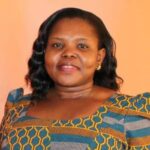
Losira Nasirumbi-Sanya
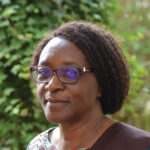
Margaret Mangheni

Margaret Smith
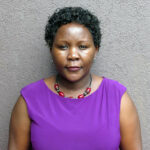
Maria Nassuna-Musoke

May Sengendo
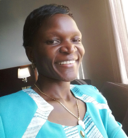
Miriam Kyotalimye
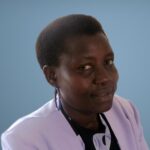
Peace Musiimenta
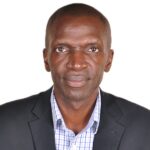
Richard Miiro


